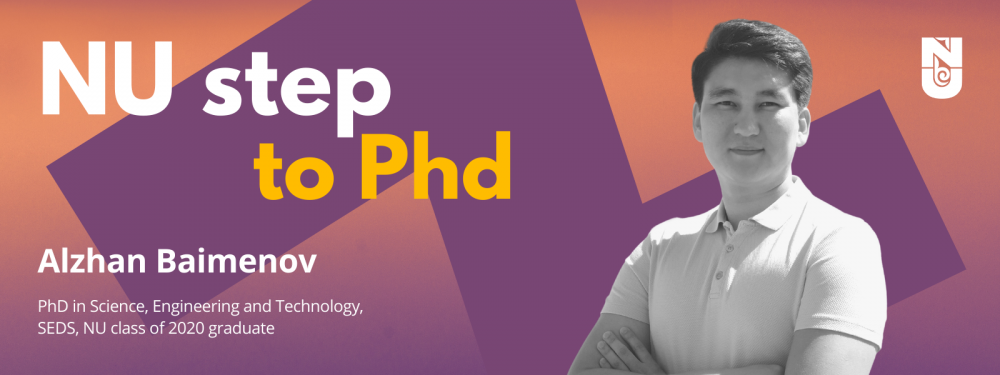NU PhD graduate’s research can help to provide clean water to the residents of the country
Today we will talk with Alzhan Baimenov, PhD in Science, Engineering and Technology, class of 2020 NU SEDS graduate. Alzhan now works as a postdoc at al-Farabi Kazakh National University, and at the same time, works on his research at Nazarbayev University as a research assistant.
- What was the topic of your thesis?
The topic of my dissertation is “Macroporous cryogel composites for removal of heavy metals from aqueous and biological media”. It’s no secret that polluted water is bad for the environment, as it destroys and poisons the surrounding ecosystems. Therefore, the problem of clean water access is one of the most pressing issues for all mankind, including Kazakhstan. My goal was to develop macroporous polymers, namely cryogels to remove toxic metal ions from polluted water, as well as from animal organisms poisoned with metals.
The results of my research have shown that the developed cryogels have a high efficiency in removing toxic metal ions both from model solutions and from water from natural sources. In addition, we tested cryogels as enterosorbents for the adsorption of cadmium, strontium, cesium and mercury from the bodies of poisoned animals. The experiments were carried out at the Asfendiyarov Kazakh National Medical University with the assistance of my external supervisor – Professor Talgat Nurgozhin. The results showed that with the use of cryogels, the survival rate of animals was almost 100%, while only 30% of animals survived without treatment.
Thus, cryogels can be used both as filters for water purification and as sorbents for enteral detoxification. I really hope that my research findings will be useful for practical application in the future, and later, they will contribute to providing the country’s residents with clean water.
- Tell us about your research process?
Since the topic I had chosen was new to me, it was not easy at first. But I had an aspiration to achieve a result, and for that I had necessary conditions, such as the most up-to-date laboratories and cutting edge equipment. In addition, while working on my PhD research, I was surrounded by the most intelligent and helpful people. And here I would like to thank my supervisors – professor Vasileios Inglezakis and professor Stavros Poulopoulos for their immense support. And, of course, I would like to express special gratitude to my family for their patience, understanding and support.
- Please tell us about your plans for the nearest future?
Now I am fully engaged in scientific research. This year I won a grant from the Ministry of Education and Science of the Republic of Kazakhstan, thanks to which I can continue to work on the synthesis of cryogels for purifying water from antibiotics for three more years. Why antibiotics? This is due to the fact that during the pandemic, the amount of consumed antibiotics increased significantly, and most of them enter wastewater unchanged or as metabolites, which in the future may negatively affect the environment and human health. Therefore, I believe that it is important to start researching this topic now, so that in the near future I have an opportunity to offer solutions to this problem.
- What advice would you give to future doctoral students?
I would recommend that future doctoral students be persistent in their research, not to get easily disappointed if something does not work out, and never to be satisfied with what has already been achieved! I would also recommend reading the most up-to-date scientific literature related to the field of your research, to always voice all problematic issues, and never hesitate to consult with senior colleagues or professors if there is ever something you don’t know. Fortune favors the brave!


